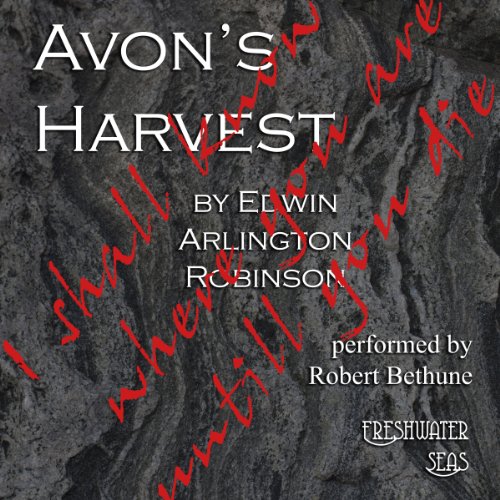-
Poor Richard's Almanac
Benjamin Franklin, Robert Bethune, Freshwater Seas
Audiobook (Freshwater Seas, Oct. 10, 2011)The prefaces, proverbs, and poems of Benjamin Franklin, originally printed in editions of Poor Richard's Almanac for 1733 to 1758. As Benjamin Franklin himself put it: "Courteous Listener: Besides the astronomical Calculations, and other Things usually contain’d in Almanacks, which have their daily Use indeed while the Year continues, but then become of no Value, I have constantly interspers'd moral Sentences, prudent Maxims, and wise Sayings, many of them containing much good Sense in very few Words, and therefore apt to leave strong and lasting Impressions on the Memory of young Persons, whereby they may receive Benefit as long as they live, when both Almanack and Almanac-maker have been long thrown by and forgotten. If I now and then insert a Joke or two, that seem to have little in them, my Apology is, that such may have their Use, since perhaps for their Sake light airy Minds peruse the rest, and so are struck by somewhat of more Weight and Moment. The Verses on the Heads of the Months are also design'd to have the same Tendency. I need not tell thee that many of them are of my own Making. If thou hast any Judgment in Poetry, thou wilt easily discern the Workman from the Bungler. I know as well as thee, that I am no Poet born, and it is a Trade I never learnt, nor indeed could learn. If I make Verses 't is in Spight—Of Nature and my Stars, I write. Why then should I give my Readers bad Lines of my own, when good Ones of other Peoples are so plenty? 'T is methinks a poor Excuse for the bad Entertainment of Guests that the Food we set before them, tho' coarse and ordinary, is of one's own raising, off one’s own Plantation, [etc.] when there is Plenty of what is ten times better, to be had in the Market. On the contrary, I assure ye, my Friends, that I have procur'd the best I could for ye, and much good may it do ye. I am thy poor Friend, to serve thee, Richard Saunders." Since Ben Franklin would have been amazed at audiobooks, let these few details be added: unlike most editions of Poor Richard, this one includes essentially all of the text, not just the aphorisms and sayings. This gives you, Courteous Listener, a much better appreciation of how Franklin wrote and thought. In particular, you will find that the full body of the Poor Richard almanacs contains a great deal of religious and spiritual thought in which Franklin laid out and propounded his understanding of Christianity as it stood in his day. Last but not least, since a long parade of sayings, poems, etc., would be dull all strung together, this edition includes snippets of music between them, drawn from about four dozen Colonial-era tunes and imitating the sound of Colonial instruments such as flute, fife, lute, English guitar, music box, and harpsichord. May you enjoy it and draw benefit from it, as Ben himself would have wished!
-
Sugar Street
M.J. Pullen
eBook (Freshwater Ink, Aug. 7, 2018)Four wives. One tennis pro. One wild scheme to risk it all for love...From Amazon bestselling romantic comedy author, M.J. Pullen, comes the playful domestic satire Kirkus Reviews calls "a glitzy romp."In idyllic Sugar Mills, four women are quietly struggling to keep the fire in their marriages. Jess adores her sportswriter husband, but he’s more likely to fall asleep than to respond to her creative attempts at seduction. Infertility has left ex-tennis star Carras feeling powerless and frustrated. Social-climber Delia agreed to an open marriage when she had nothing to lose; but now she wants more than she bargained for. And PTA president Maizy is desperate for acceptance: in the community, and even with her own health-obsessed husband. Enter Parker, a gorgeous young tennis pro, who makes the women wonder if a little well-orchestrated jealousy might be just the thing. Will a risky scheme put the spark back in their suburban marriages, or burn everything to the ground?Enjoy this playful, sexy, domestic satire--the perfect lighthearted read for book club!
-
The Man in the Iron Mask: Celebrated Crimes, Book 11
Alexandre Dumas père, Robert Bethune, Freshwater Seas
Audiobook (Freshwater Seas, Feb. 6, 2015)To paraphrase the note from the translator, the Celebrated Crimes of Alexandre Dumas père was not written for children. The novelist has spared no language--has minced no words--to describe violent scenes of violent times. In this, the eleventh of the series, Dumas switches away from his usual narrative style and gives us instead a detailed review--almost a bibliographic essay--on the various ideas and theories advanced by historians, speculative writers, and critics on one of the enduring fascinations of French royal history: the case of The Man in the Iron Mask. Ever since the time of Louis XIV, the story has been told of a man mysteriously snatched out of the world and buried for life not merely in a prison cell but also in an mask of iron: an imprisonment designed to ensure no one would ever know his name or even see his face. Dumas asks: Who was the man in the iron mask? Why was he imprisoned? Why were such strange precautions taken, and why was he treated with such respect and care, given everything he asked for--except his freedom and his name? Dumas is very scrupulous about his sources, carefully citing the full bibliographic details, while also indulging his novelist's flair for the dramatic. This recording preserves all that to give the listener the full air of authenticity Dumas so carefully manufactured.
-
The Early Poetry of Carl Sandburg: Smoke and Steel
Carl Sandburg, Robert Bethune, Freshwater Seas
Audiobook (Freshwater Seas, March 25, 2011)This is Carl Sandburg's third book of poetry and his largest. It is also the most wide-ranging. The title, Smoke and Steel, suggests the steel industry he knew in Chicago, Gary, and Pittsburg, but he writes about many other things as well. His over-arching theme seems to be human life as a struggle in adversity, a struggle for the mere necessities of life - food, clothing, shelter, work - and a struggle for the human soul, a struggle for love, charity, justice, equality. There is also eroticism, subtly expressed, in many of these poems; Sandburg loved beauty in every form, and the beauty of women was not lost on him. Here you have the voice of a master poet, a genuinely and specifically American artist, at the top of his craft and passion. Enjoy! A note to the listener: Sandburg, writing in the 1910s, sometimes used language that was racially and ethnically charged in his day and even more so in ours. It seems more honest to leave these few passages unaltered; we did speak this way once, and we do well not to forget the fact.
-
Avon's Harvest: Collected Poems of Edwin Arlington Robinson, Book 8
Edwin Arlington Robinson, Robert Bethune, Freshwater Seas
Audiobook (Freshwater Seas, Dec. 19, 2013)In Avon's Harvest, Edwin Arlington Robinson devotes the majority of the audiobook to one long narrative poem of the same title, which tells the story of how a man's life was destroyed by the slow canker of an unreasoning hatred he formed as a young man, and of a sudden act of violence that flared out of it. Robinson's wields his sparse, simple, yet brilliantly polished verse like a scalpel, dissecting layer after layer of Avon's mind until the whole is laid bare as if on an operating table.The rest of the audiobook includings a number of short poems, most particularly the famous "Mr. Flood's Party," in which an old man's courage, fortified with liquor, suffices to get him home yet one more night.
-
She: A History of Adventure
H. Rider Haggard, Robert Bethune, Susie Berneis, Freshwater Seas
Audiobook (Freshwater Seas, Jan. 13, 2016)At one point in his moody, erotic, and barbarous romance of She, H. Rider Haggard puts into the mouth of his narrator, Horace L. Holly, the observation that her story sounded like some extraordinary invention of a speculative brain. That, precisely, is what She is: a really marvelously inventive story, combining an amazing variety of what should be utterly implausible ideas into a fabric that constantly feels like truth. Even though we know that there was never a diabolical, immortal, fantastically beautiful white queen ruling over a barbarous tribe of cannibals in the heart of what is now Mozambique, it is hard to resist the impulse to pull up the map and muse about where she might have been hidden. As we get to know Her, H. Rider Haggard ensures that the mystery only deepens. We see her dispense cruel, swift justice; we see her indulge murderous passion; we see her show superhuman devotion; we see her speak from the wisdom gathered in her 20 centuries of life. We can never be sure just who or what she is. We see her through the eyes of Haggard's protagonist, Holly - a Cambridge don utterly out of his depth in a wild and savage world, utterly English to the core, which is what sees him through in the end. Bitter, misogynistic, and more than mildly racist, he is also a devoted father to his adopted son, Leo - who turns out to be the carrier of an incredible fate - and an unusually determined survivor. We have no trouble believing in Holly, and thereby we suspend disbelief and accept his tale. There was a strong streak of racism and anti-Semitism in Victorian England, and Haggard was not proof against it. We have not altered or omitted such passages but rather have left them as Haggard wrote them. We do well to remember that just as Haggard fell prey to such thinking from time to time, so too can we, despite all our modern enlightenment.